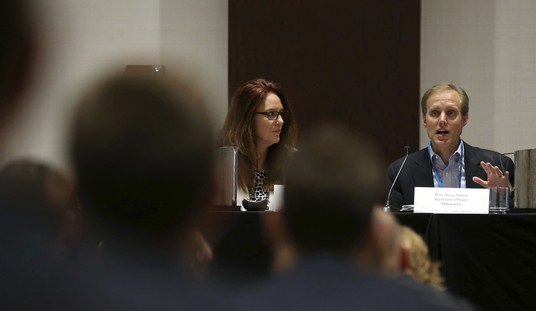The hits just keep on coming in the housing market, which predict that Barack Obama’s Recovery Summer is turning into the Endless Bummer. Yesterday, the Associated Press reports that mortgage applications hit a 13-year low last week despite low mortgage rates. Even refinancing applications dropped significantly:
Demand for loans to purchase U.S. homes sank to a 13-year low last week, and refinancing demand also slid despite near record-low mortgage rates, the Mortgage Bankers Association said on Wednesday.
Requests for loans to buy homes dropped 3.1 percent in the week ended July 9, after adjusting for the Independence Day holiday, to the lowest level since December 1996, the industry group said.
Refinancing applications fell 2.9 percent, and the mortgage market index that reflects total loan demand also fell 2.9 percent.
Average 30-year mortgage rates edged up 0.01 percentage point to 4.69 percent, but were near the record low of 4.61 percent set in March 2009, based on MBA records dating back to 1990.
It seems as though the two tax credits took all of the demand from this quarter and moved it up into earlier quarters. Now that the artificial stimuli have ended, most of those who intended to buy have already done so in order to take advantage of a useless taxpayer subsidy of the sales. There remains only a historically small demand among those who either didn’t qualify for the tax break or didn’t need it, or perhaps a cadre of buyers who think that Congress will create yet another subsidy for sales and are waiting them out.
Meanwhile, the attempt to bully and wheedle banks into stopping foreclosures last year didn’t do much to save houses in default. Again, it’s the Associated Press informing people today that there will be more foreclosures in 2010 than there were in 2009, breaking records again:
More than 1 million American households are likely to lose their homes to foreclosure this year, as lenders work their way through a huge backlog of borrowers who have fallen behind on their loans.
Nearly 528,000 homes were taken over by lenders in the first six months of the year, a rate that is on track to eclipse the more than 900,000 homes repossessed in 2009, according to data released Thursday by RealtyTrac Inc., a foreclosure listing service.
“That would be unprecedented,” said Rick Sharga, a senior vice president at RealtyTrac.
By comparison, lenders have historically taken over about 100,000 homes a year, Sharga said.
Remember when the Obama administration announced its plan to spend billions of dollars to prevent foreclosures? The White House threatened banks that attempted to seize defaulted property and tried to get judges to reset the principal of the loans in court. None of that has helped stop the wave of foreclosures; it has only delayed and strung out the pain, ironically cresting just as voters go to the midterm polls.
None of the stimuli and the rescue plans worked, because none of them addressed the core problem: joblessness. Without jobs, people lose their homes no matter how much the government intervenes to stop it. Some houses were underwater, while other homeowners simply couldn’t afford any kind of house payment, thanks to a job market gone cold. The number of actual jobs has decreased by three million since the passage of Porkulus over seventeen months ago, and having a million foreclosures on that kind of job loss wouldn’t exactly be unexpected.
Until we get people back to work, these programs are simply futile. A homebuyer tax break doesn’t help someone without a job qualify as a buyer, and restructuring plans for existing mortgages can’t help an unemployed person make a mortgage payment. We need to shift gears quickly to reduce the massive uncertainties created by the radical Democratic agenda, reduce taxes and the regulatory burden, and get capital working in the US again so that we have employment at a level where foreclosures return to their normal level. Only then will housing markets stabilize.








Join the conversation as a VIP Member